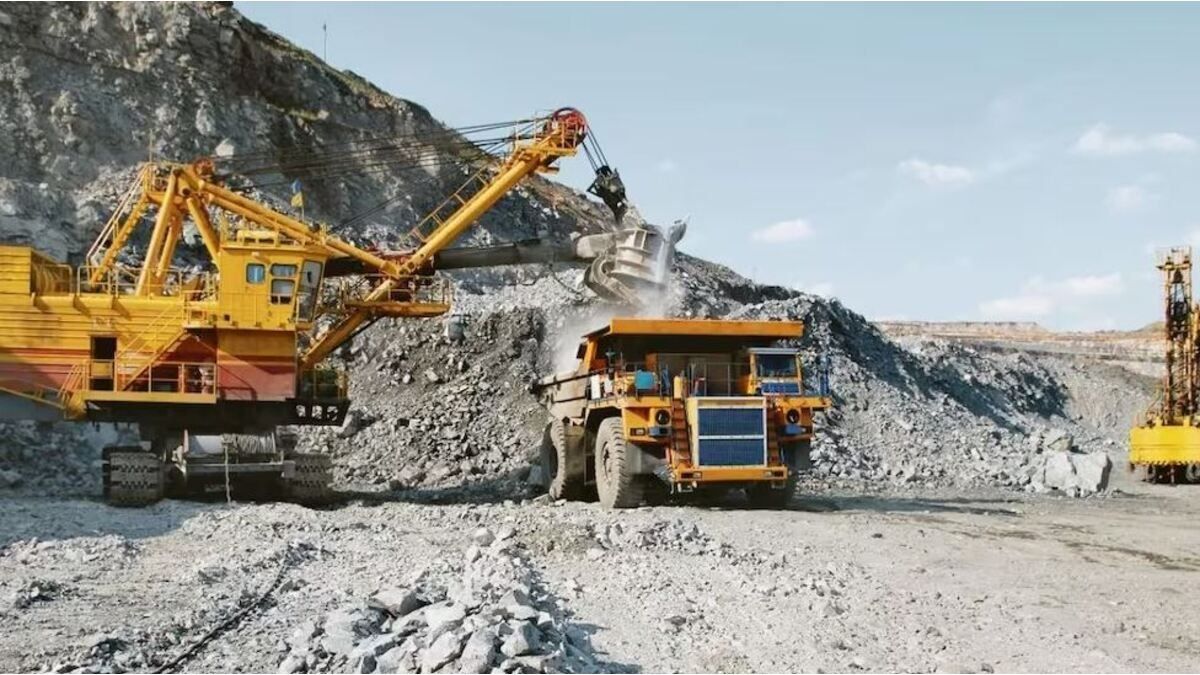The lithium market has grown in recent years, driven primarily by the rise of lithium-ion batteries, which power electric vehicles, electronic devices and renewable energy storage systems. According to recent data, Batteries represent 83% of lithium demand, of which 65% corresponds to the electromobility sector.
Lithium deposits in Argentina are found in brines within endorheic basins in the Puna region, in the northwest of the country. These geological and climatic conditions allow lithium to be extracted economically. Unlike other producing countries, where rock mining is the main source, Argentina benefits from brine extraction, a technique that is less expensive and more environmentally viable. With a current production of 9,600 tons per year, the country is expected to increase its productive capacity as new projects come into operation.
Argentina, like its neighbors, has the opportunity to take advantage of its natural resources to integrate into the global lithium value chain, generating foreign currency and employment. However, to achieve a positive long-term impact, the country must avoid dependence on an extractivist model without added value.. In this sense, effective development of the sector must aspire for lithium operations in Argentina to include industrialization stages and the participation of local suppliers in the production chain.
The challenges of industrialization: the role of sodium carbonate
The lithium extraction process in brines, in addition to requiring natural resources, requires chemical inputs such as sodium carbonate (or soda ash), which is fundamental in the lithium value chain. In Argentina, the company Álcalis de la Patagonia (ALPAT) produces sodium carbonate and is the only producer of this input in South America. ALPAT has a plant in San Antonio Oeste, Río Negro, which since 2005 has increased its production capacity to supply the local industry and other sectors, such as glass manufacturing.
ALPAT’s role and its ability to supply the lithium industry is crucial to avoid dependence on imports of soda ash, the price of which has grown considerably in recent years. Furthermore, a national mining industry that uses local inputs such as sodium carbonate generates a multiplier effect in the economy, promoting the growth of local suppliers and job creation in various regions of the country.
Advantages and challenges of a local value chain
The incorporation of national suppliers in the lithium production chain in Argentina has multiple benefits. On the one hand, it allows reducing production costs by minimizing the impact of international prices and transportation costs. On the other hand, it strengthens the internal economy by creating jobs and opportunities for local companies that can satisfy the demand for inputs and services required by this industry.
However, Argentina’s current dependence on foreign suppliers limits development potential. In particular, the increase in imports of soda ash, which went from 187 thousand tons in 2018 to 393 thousand tons in 2023, represents considerable economic pressure and shows a lack of local integration in the production chain. In value terms, soda ash imports for the lithium industry and other sectors have grown to $190 million in 2023, underscoring the need to develop local suppliers to address this demand.
Policies for competitiveness and sustainable development of the industry
Argentina has regimes Temporary admission for imports that exempts from taxes inputs used in the production of exportable goods. Although this policy can benefit transnational companies operating in the country, it also creates disadvantages for local input producers, who must compete with lower international prices.
This benefit also generates less revenue for the treasury, in times when resources are needed in state coffers.
On the other hand, the increasing pressure on fiscal resources and the impact of these policies on local industry suggest that the country needs a more inclusive and sustainable development strategy. To achieve this, it is crucial to establish a collaboration between the public and private sectors that encourages the growth of local suppliers and reduces dependence on imports, while guaranteeing sustainable and environmentally friendly development.
Towards an industrial development policy for lithium
The industrialization of the lithium chain in Argentina requires long-term strategic planning that seeks to maximize the added value of natural resources. An industrial development policy for lithium should include:
- Incentives for local suppliers: Support national companies so they can meet the demand for inputs, such as sodium carbonate and other chemicals necessary in the lithium extraction and production process. This not only strengthens the local industry, but also reduces dependence on imports and associated costs.
- Environmental sustainability policies: Lithium mining, although less polluting than other extractive activities, has an impact on local ecosystems. Implementing environmental management policies and promoting less invasive technologies for the extraction of lithium in brines would help mitigate this impact. The adoption of strict environmental standards and the implementation of land reclamation plans are essential to ensure a sustainable industry.
- Development of local technologies: Lithium is not only a strategic resource, but also an opportunity to promote research and development of technologies that allow the production of batteries, electric vehicles and energy storage systems. Investing in the training of local talent and the creation of research centers specialized in lithium technology can position Argentina as a leader in the global value chain.
- Tax and financial incentives: To encourage the participation of local companies and attract foreign investment, the government can offer specific tax and financial incentives for projects that include a high percentage of local content. These incentives would not only strengthen the competitiveness of the Argentine industry, but would also allow the technological gap to be reduced with the most advanced countries in the sector.
- Strengthening international alliances: Given the importance of the “Lithium Triangle”, Argentina, Bolivia and Chile could collaborate to establish common sustainability standards and negotiate better market conditions. These regional alliances would also allow the sharing of technologies and improve the region’s position as a strategic supplier of lithium in the world.
Thus, Argentina is at a key moment to capitalize on its potential as a lithium supplier in the world market. The growth of the industry not only represents an economic opportunity, but also a challenge in terms of sustainability and industrial development.
To achieve the maximum benefit from its resources, the country must adopt a strategy that allows adding value to lithium at each stage of its production chain, and at the same time, incorporate local suppliers in the supply of key inputs such as sodium carbonate.
The implementation of a comprehensive industrial development policy, which includes incentives for local suppliers, the adoption of advanced technologies and a vision of environmental sustainability, is essential to ensure that the lithium boom drives sustainable economic transformation and greater technological autonomy in Argentina .
ALPAT’s role in the lithium industry
Alcalis de la Patagonia (ALPAT) is the only company producing sodium carbonate, also known as soda ash, in South America, which makes it a key player for the Argentine industry. Soda ash is an essential chemical compound in sectors such as the manufacture of glass, lithium, natural gas and cleaning products, and plays a key role in various industrial Global Value Chains (GVCs). ALPAT faces the challenge of supplying domestic demand in a market that is heavily dependent on imports due to the limited local availability of trona, the raw material used to produce natural ash soda.
In the lithium sector, for example, soda ash represents 41% of production costs. The growing expansion of lithium and natural gas production in Argentina anticipates an increasing demand for this chemical. The glass industry, which uses soda ash to improve production efficiency, is another crucial market for ALPAT. However, most of the demand for soda ash is met by imports.
One of ALPAT’s current challenges lies in the high costs of logistics and transportation in Argentina, which complicates the distribution of soda ash to other regions of the country. Starting with the relaunch of the Patagonian Train in 2023, the company has begun to use this means to transport its product to the Argentine Northwest, significantly lowering logistics costs, especially for the lithium industry. This is relevant because, according to estimates, the lack of domestic production could lead to annual soda ash imports of up to $120 million in the next decade for the lithium sector alone.
Globally, the soda ash market is growing and is expected to reach a value of $21.6 billion by 2032, driven by its use in flat glass, packaging and detergents. ALPAT could position itself as a competitive player against the rise in international prices of imported ash soda, which has seen a significant rise in the last five years. National production, in addition to avoiding tariff costs, provides an economic advantage for local companies, although imports persist, particularly in sectors such as gas and lithium that can import soda ash without paying the 9% tariff as they are inputs. temporary for export.
With its strategic position in South America, ALPAT could play a fundamental role in the expansion plans of industries such as lithium and natural gas, which project growth driven by the development of deposits such as Vaca Muerta and offshore exploration. In short, the company not only represents a crucial source of inputs for key industries in Argentina, but is also emerging as a competitive factor in the face of increased demand in the region.
Source: Ambito
I am an author and journalist who has worked in the entertainment industry for over a decade. I currently work as a news editor at a major news website, and my focus is on covering the latest trends in entertainment. I also write occasional pieces for other outlets, and have authored two books about the entertainment industry.




